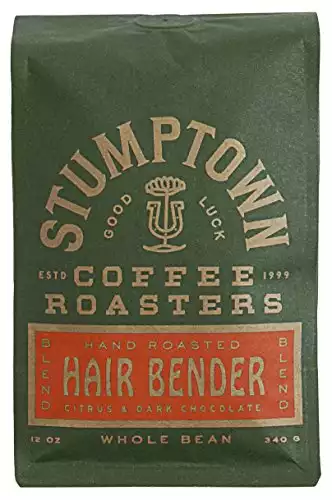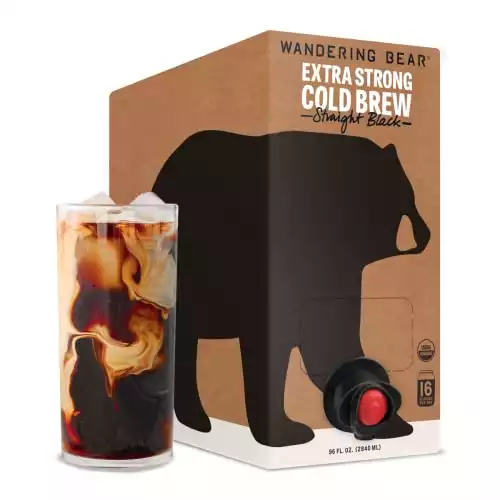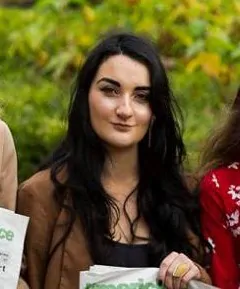As a coffee lover, what action should you take to reduce its negative environmental impact? Below is a list of the best sustainable coffee brands to try.
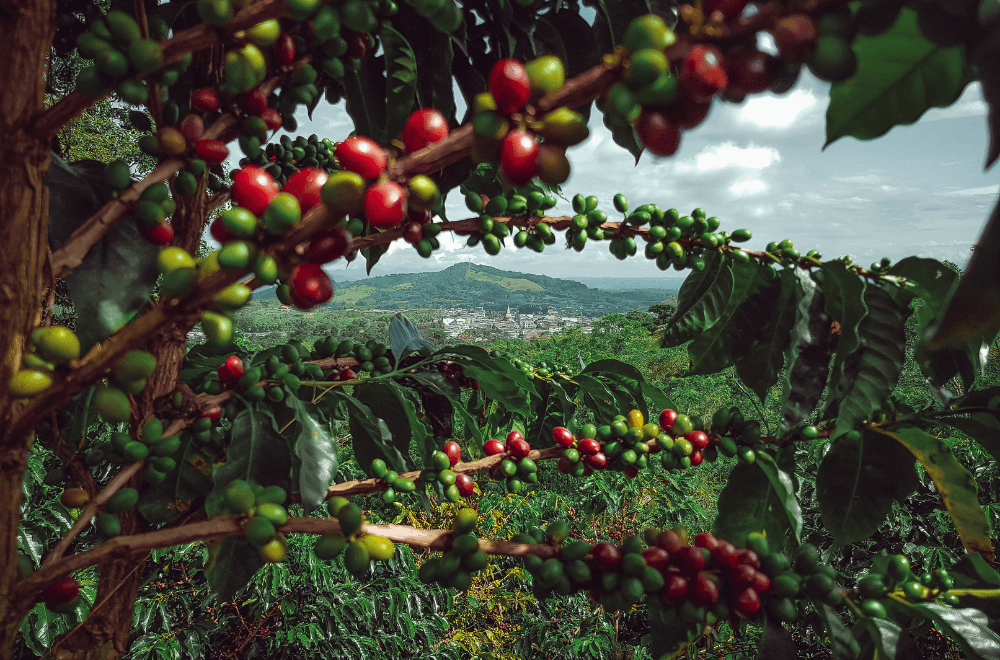
The National Coffee Association reports that 62% of Americans consume coffee daily. With that in mind, it’s easy to see how switching to environmentally friendly coffee brands might make a difference in living greener lives.
If you are looking for a new coffee or wish to decrease the effects of climate change, here’s a list of the best sustainable coffee brands.
1. Driftaway Coffee
Driftaway Coffee’s tagline, “Sustainable Coffee for People and the Planet,” says it all. Their impressive and comprehensive list of sustainable practices is just as long as their selection of coffee.
Driftaway, a certified B Corporation, aims for carbon neutrality by modifying its operations and investing in carbon offsets. Their online store already uses considerably less energy than retail stores, and they reduce shipping and transit to limit emissions.
They use the incredibly effective Loring roaster to roast three-quarters of their coffee, and as of 2019, all of their packagings is biodegradable. Driftaway uses Cool Effect to buy carbon offsets for the inevitable emissions of shipping fresh coffee nationwide. As a result, 90% of the money raised goes toward green projects.
2. Wonderstate Coffee Organic Driftless
Another Cooperative Coffees member that takes pride in going above and beyond the Fair Trade coffee price minimums is Wonderstate Coffee, formerly known as Kickapoo Coffee. They avoid the third-party certification process in favor of what they call “sourcing for the collective good.”
Coffee is chosen depending on preference, ethos, and local customs.
They pay farmers an industry-leading 80% more than Fair Trade minimums through this Direct Trade strategy and 50% more for organic coffee. In this arrangement, farmers are prioritized over market forces.
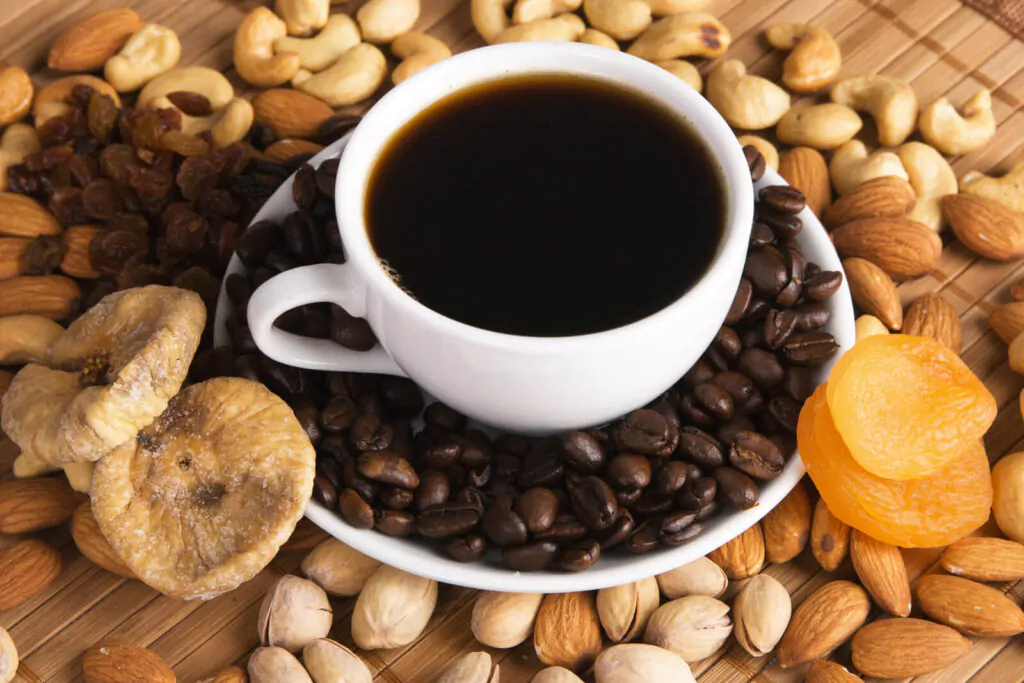
The Wisconsin headquarters of Wonderstate became one of the few fully solar-powered coffee roasters five years ago. In addition, they buy carbon offsets for their bulk transportation. They give out 5% of their annual income to local projects.
The Wonderstate Coffee Organic Driftless, a comfortable and well-balanced medium roast, is Wonderstate’s most popular blend. With a mix of Central and South American beans, it has flavor notes of graham crackers, toasted almond, toffee, and cocoa powder that are sure to satisfy.
You may also be interested in reading our guide on the best organic coffee brands.
3. Larry’s Coffee
You can find the smokey flavors of roasted cacao and s’mores in Larry’s Coffee Blue Ridge Mountain Blend, a medium roast. As part of Larry’s For-A-Cause series, they plant a tree for each bag sold and give 5% of profits to the Arbor Day Foundation.
Their sustainability efforts cover every step of the production chain, so this is one of our top picks for sustainable coffee this year.
The independent roasters’ Cooperative Coffees was established with Larry’s Coffee as a founding member. This collective only purchases Fair Trade-certified coffee. They solely buy from small coffee farms, the bulk of which are under five acres in size, giving them more choice over how they are treated and compensated than they would otherwise have.
They only use shade-grown coffee, Fair Trade, and are organic.
4. Counter Culture
With aromas of lime, flowers, and dark honey, the Counter Culture Coffee Ethiopian Muda Coffee is a unique medium-light roast that is highly acidic. The single-origin coffees from Counter Culture are remarkable.
One of the first brands of environmentally friendly coffee is Counter Culture. They were established more than 20 years ago, opening the door for many others in the coffee industry. While certified organic coffee remains a top priority for Counter Culture, they are also creating a more comprehensive indicator of farm sustainability.
Their practice of enforcing guaranteed contracts with farmers is essential in terms of coffee quality. These give producers the motivation to produce the most incredible coffee and the financial freedom to try new things in their pursuit of excellence.
You may also be interested in reading our guide on why single-origin coffee is worth trying.
5. Stumptown Coffee Hair Bender
A blend of coffee beans from South and Central America, Africa, and Indonesia creates the delicious and well-balanced Stumptown Coffee Hair Bender. It is ideal for espresso or French press because of its robust flavor and rich body. It is the most popular Stumptown Coffee blend.
Regarding the effects on the economy, society, and environment, Stumptown Coffee has committed to sustainability throughout its supply chain. They joined the B Corporation club in 2019. They use a Direct Trade methodology for sourcing, which they helped develop about 20 years ago.
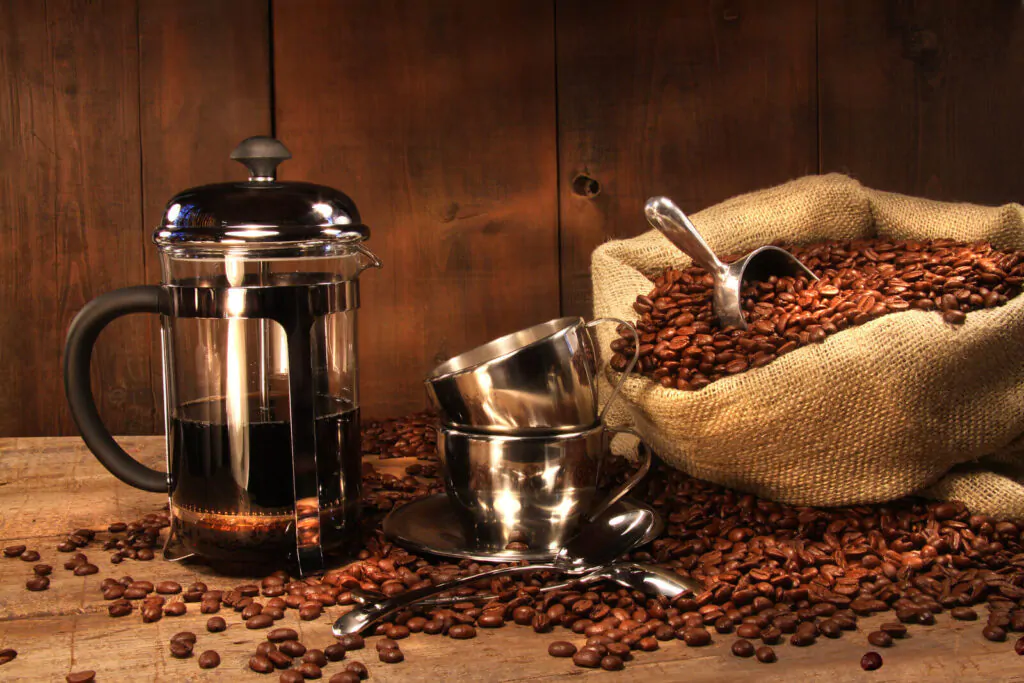
Their staff spends about half the year on the ground in coffee-growing countries, connecting to farmers and looking for the best beans as part of a relationship-driven strategy. In 2019, they obtained more than 90% of their coffee from growers they had collaborated with for at least three years.
Stumptown pays farmers according to the quality of their coffee rather than basing payments on market forces. Farmers are paid fairly and are encouraged to grow the most excellent coffee possible.
6. Salt Spring Coffee
With a hefty body, velvety mouthfeel, and smooth tastes of chocolate, caramel, and cherries, the Salt Spring Coffee Metta Espresso is a traditional medium-dark espresso blend of coffee from Sumatra and Latin America.
This company goes beyond what is necessary to be certified as a B Corporation because they have been named B Lab’s Best for the World three times. They also participate in 1% for the Planet, donating at least 1% of their annual revenue to environmental causes.
The entirety of Salt Spring Coffee is Fair Trade and Organic certified. They are active in areas where coffee is grown, forming bonds with growers and implementing sustainable agricultural methods. They launched the Fair to Farmer Fund twenty years ago.
Salt Spring is dedicated to confronting the issue of coffee packaging head-on. British Columbia’s bags are recyclable, and they are looking into cellulose-based biodegradable bags and other environmentally friendly alternatives.
7. Wandering Bear
Wandering Bear Extra Strong Organic Cold Brew Coffee comes in plain black and delectable hazelnut and vanilla flavors. You may recycle the 96-ounce box after using it, and it will keep you energized for a while.
Wandering Bear Coffee sources organic coffee beans from co-ops and small farms in Peru, Mexico, Nicaragua, and Colombia. These areas are well recognized for their clean, smooth coffee with pleasant notes of chocolate, almonds, and ripe fruit.
They became the first coffee shop to provide cold brew coffee in boxes on tap. Wandering Bear now provides single-serve items to satisfy consumer demand while still adhering to its sustainable concept. Their K-Cups and resealable boxes are both 100% recyclable, with the box lids made from sugarcane!
Cold brew has 150 mg of caffeine per 6 oz. serving. That’s two espresso shots right there. And you get about 16 glasses of cold brew in the 96oz box.
8. Café Mam
Café Mam Decaf Royal Espresso is a medium-dark blend that varies from harvest to harvest but always provides the rich body and sweet tastes you want in an espresso blend.
Specialty coffee roasters typically only offer one or two decaf options, but not Café Mam. In addition to having significant socioeconomic and sustainability initiatives, they provide a decaf or half-caf choice for each coffee.
As a coffee firm that cares about the environment, they employ the Swiss Water decaffeination method, which removes 99.9% of the caffeine while preserving 100% of the flavor by using water rather than chemicals.
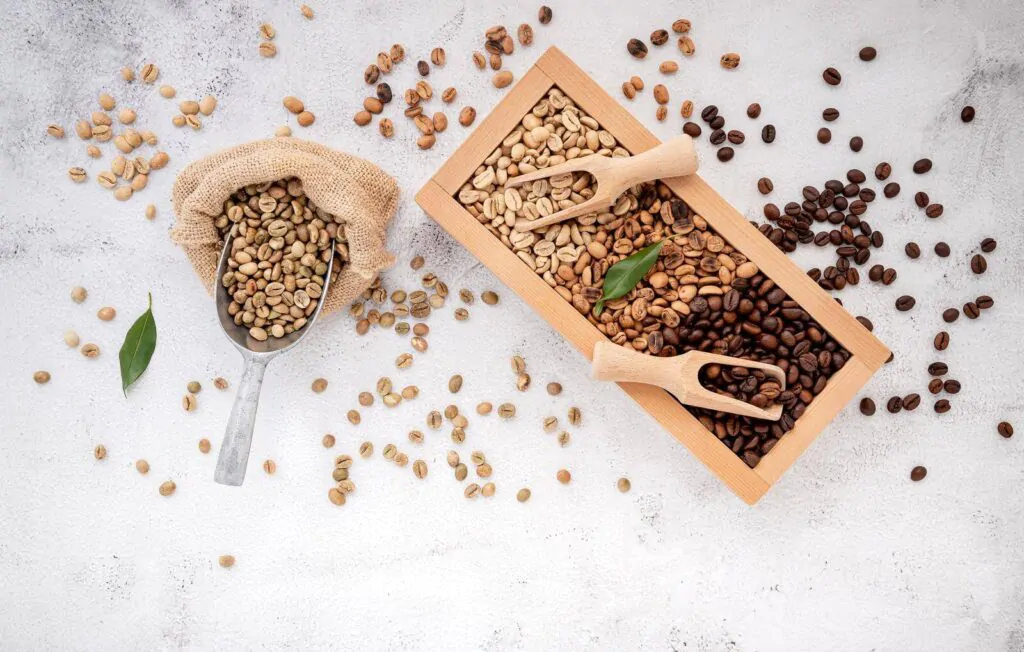
The Mam people, a division of the Mayan Nation, are renowned as some of Mexico’s top farmers, and Café Mam bears their name. Through independent co-ops, Café Mam collaborates with the Mam people to get some of the best coffee in the region.
All of the coffee at Café Mam is Fair Trade and organically grown, and it also has the Small Producers’ Symbol (SPP). The SPP is better suited to serve the requirements of coffee growers and their communities because it is the only farmer-owned Fair Trade certification.
